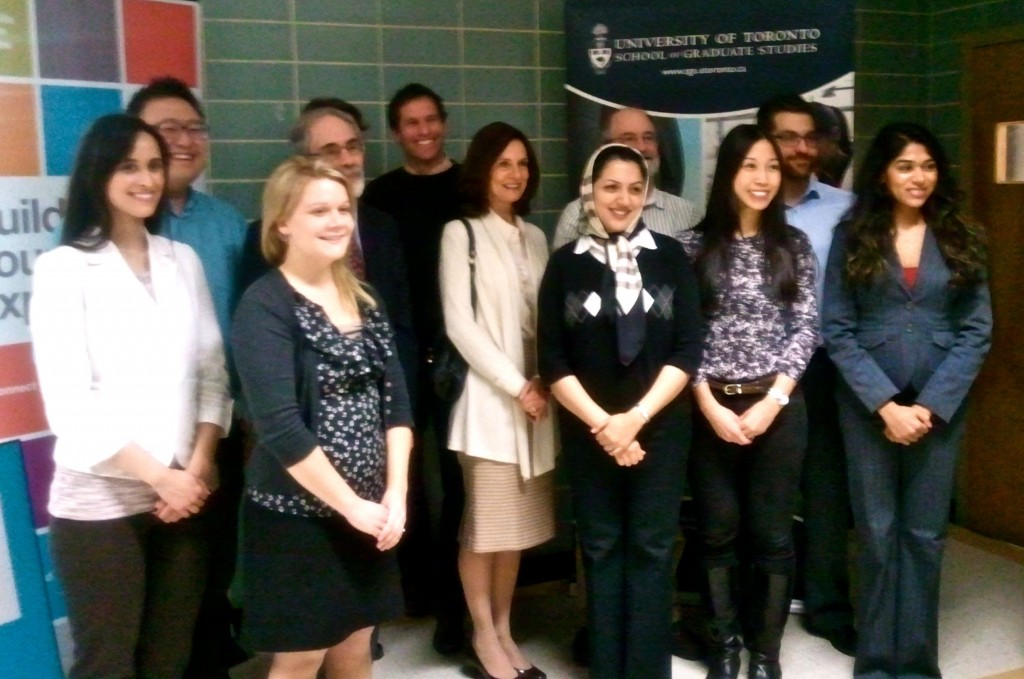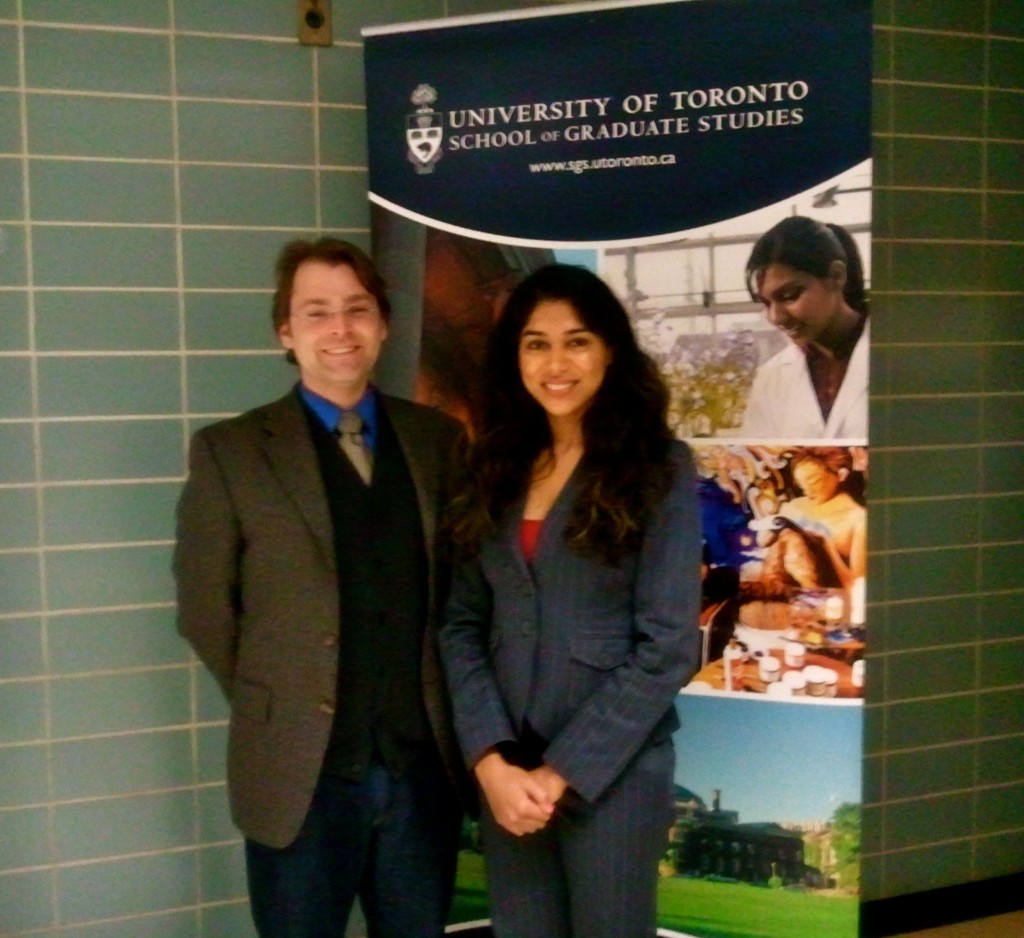Monday, March 25th, 2013...8:27 pm
Tight Competition: The Three Minute Thesis
It was 7:15pm in the Galbraith Building. About 25 students gathered in room 221 while a nervous buzz emanated. No one motioned to the table with (FREE!) fruit, cookies and sandwiches – this was obviously serious business. The competition had reached its final round, and 9 contestants remained in the Three Minute Thesis Competition last Friday.
Started at the University of Queensland in Australia, the Three Minute Thesis is a university-wide competition in which doctoral students are asked to present their research in a short engaging three-minute presentation. The stakes? First prize wins $1000 and runner-up wins an iPad, and both go forward to the provincial finals at Queen’s on April 18th (where I imagine even better prizes await!).
I arrived at the finals from the Dean’s Graduate Research Conference at OISE, where I had just managed to present my own 2-year research project in what felt like an impossibly short 15 minutes. Rushing through my slides and covering as much ground as possible, I wondered how the competitors would be able to concisely present doctoral research in such a short time. Oh, and did I mention they were only allowed ONE static powerpoint slide, and no help from additional audio/video technology? This competition was not for the long-winded or convoluted speaker.
And yet these finalists managed the impossible – presenting varied research topics from multiple disciplines, the topics quickly moved from integrated health care to nanoparticles to post-earthquake Haitian reconstruction. Perhaps the most difficult task was presenting research in a way that was clear to judges and audience, regardless of its complexity, or disciplinary focus.
By 8pm the judges convened and the room returned to an anxious patience. The audience and participants chatted quietly while they waited. As the judges again entered, an anticipatory silence fell over the room.
In the end, it was Jasdeep Saggar who was victorious in her presentation of her research, “Hypoxia-activated pro-drugs: A novel approach for breast cancer treatment” and the runner-up went to Abraham Heifets for his work on exploring the question, “How can we make better medicines? Computer tools for chemistry.” A long day that began at 4pm, these two contestants elated in their success as they were presented their awards and shook hands. Now who says there’s no excitement in research?



Comments are closed.